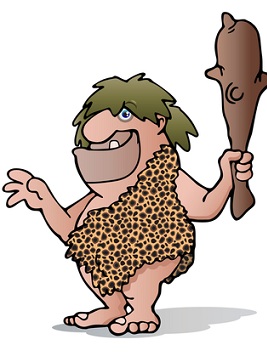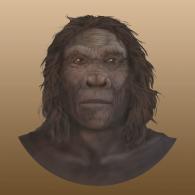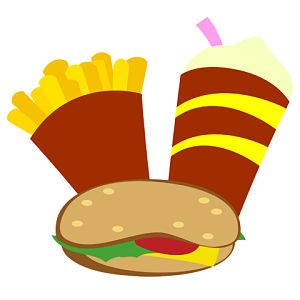
Early cave men did not look like this, and they did not eat the Paleo diet either. But good myths are hard to get rid of.
Still Another “High-Protein” Diet Threatens Your Health
The Paleo Diet can hook you with its story. This “cave man” diet promises to reunite you with your ancestors from 2.5 million years ago through the simple act of eating meat. In this complex era of busy lives and disconnected community, this is an appealing picture. Agriculture, which began 10,000 years ago, is the story’s villain, supposedly leading people away from the hunt to an unnatural diet.
Loren Cordain, PhD and professor at Colorado State, launched the Paleo Diet with his book of the same name. This restrictive eating plan forbids all grains, potatoes and legumes (peas, lentils, beans) as well as dairy and processed foods (including processed meats). You eat all you want of meat, fish, vegetables, and fruit. Bone marrow, animal organs, and meat from wild animals are all on the menu.
The book represents that you can cure just about any chronic illness, from heart disease to cancer, by eating this way because it would match the way your distant ancestors ate for over two million years. You are also supposed to lose weight, and fast – up to 75 pounds in six months.
SCIENCE OR SCIENCE FICTION?
Let’s determine whether the Paleo Diet is science or science fiction by looking at some simple facts. Here are a few key Paleo myths vs. reality.
Myth: Human genetics has been basically the same for the last 2.5 million years, with the ideal diet unchanged during that time.
Reality: You and all humans alive today belong to a species called Homo sapiens. Our species did not come into being until about 200,000 years ago. So through over 90% of the Paleolithic, the human ancestors that existed (and there were many) were by definition genetically different from us because they were entirely different species!
According to the Smithsonian Institute, most scientists currently recognize some 15 to 20 different species of early humans. We don’t know how

Homo habilis was an early human who thrived during the Paleolithic era, and is clearly different genetically than humans are today. This species had thick teeth and strong jaws, ideal for chewing hard plant foods. Scientists think this species made stone tools, but are not certain. Image from the Smithsonian, Karen Carr Studio image credit.
many of them related to each other or us. Leading researchers don’t agree on critical questions in human evolution. It’s misleading for Professor Cordain to represent he has all these answers.
Myth: Humans ate a lot of meat and bone marrow they scavenged from kills made by large predators, starting 2.5 million years ago.
Reality: You need zero science background to see through this assertion. First, predators tend to be protective of their kill. They hang around the neighborhood and guard it, not being too eager to share with a bunch of primates.

Much of early human evolution occurred on the savannahs of Africa, vast grasslands. Of course there were wild animals and early humans did eat some meat. But the bulk of their diets came from plants, which are a lot easier to catch and a more reliable source of calories.
Second, humans evolved in Africa. It was hot, really hot. Animal carcasses would start rotting quickly after death, becoming cesspools of dangerous bacteria. True predators made to eat raw meat, such as large cats, have highly acidic stomach acid that can inactivate potentially killer bacteria.
Humans, made to eat plants and sporting much less acidic stomach acid, could quickly be felled by the bacteria in meat and bones sitting around rotting for days – or even hours – in the African sun. Ever had food poisoning from undercooked food, or food kept out of the refrigerator too long? Well, 2.5 million years ago humans had not mastered the use of fire, and there weren’t too many refrigerators on the savannah.
Myth: Grains are unnatural and dangerous foods for humans, who did not eat cereals until agriculture corrupted their diets.
Reality: Studies of whole grains prove they are beneficial for health. Whole grains have been shown in hundreds of studies to lower the risk of cardiovascular disease, diabetes, obesity, and some cancers. If you hear people accuse whole grains of being unhealthy, ask for their source of information. Unless it is a peer reviewed medical or nutrition journal, forget it. Someone just made it up.
You can tell if a study is peer reviewed if it is published in a journal included on the site pubmed.com, which you can determine yourself in less than a minute. While you are at it, check out the summary (abstract) of the study on pubmed to be sure the source of your information did not misrepresent the study.
All whole grains are seeds, usually of certain grasses. Much of human evolution took place on the savannahs of Africa, which are vast grasslands.

This rice field illustrates that grains are the seeds of certain grasses. Pseudograins, such as quinoa, are also seeds, but of different kinds of plants. Nutritionally, grains and pseudograins are very similar.
Many of our ancestors had much thicker teeth than we do today. They could chow through tree bark, let alone grass seed. Our ancestors were not crazy enough to start cultivating seeds of plants they had never eaten before.
Myth: Humans need to eat a diet dense with animal protein to be healthy and thin.
Reality: High levels of animal protein have been linked to increased risk for cardiovascular disease, cancer, and kidney stones. This protein can be inflammatory, and pave the basis for just about any chronic disease. Read The China Study for a gripping account of the health damage from higher intakes of animal protein.
Studies of Seventh Day Adventists, a denomination that avoids meat for spiritual reasons, consistently show the same outcome. Animal-based diets lead to much poorer health outcomes than plant-based diets do. Dozens of studies also show vegans are, on average, significantly thinner than those who eat animal foods.
BUT WHAT ABOUT PALEO SUCCESS STORIES?
Individual anecdotes about Paleo Diet success may be intriguing to some, but do not mount up to scientific evidence. The standard American diet is meat-based, with lots of other harmful foods in abundance and fresh produce in short supply. This diet is so bad that the Paleo Diet may actually be an improvement for some.

The standard American diet is so bad that Paleo could actually be an improvement for some. This does not mean that Paleo should be your first choice, though.
If someone tells you they are thinner and healthier on the Paleo Diet, ask them what they ate before. If the answer is cheese, hot dogs, fast food burgers and fries, donuts, cookies, chips, ice cream, white bread, bagels, and soda, there is your answer. At least on the Paleo Diet, they are avoiding dairy and processed foods and eating more fruits and veggies. Hence the improvement. This does not prove the Paleo Diet is their top choice, however.
A plant-based diet is the ideal our ancestors thrived on and that works optimally for you today, not Paleo and not the standard American diet. The Paleo Diet works as a bed time story, not as a guide to stake your life on.
If you liked this blog and want to support your journey to health, you may enjoy checking out these whole foods, plant-based recipes.
Intrigued? Now you can use our Whole Foods Blog Finder to target informative, fun postings on whole foods, plant-based diets. Quick information at no cost!
Blog posting by Janice Stanger, Ph.D. Janice authored The Perfect Formula Diet: How to Lose Weight and Get Healthy Now With Six Kinds of Whole Foods. This easy-to-follow diet teaches plant-based eating that can prevent, and even reverse, most chronic disease. Janice’s mission is to let you know about solid scientific evidence to protect your health and safeguard your family.
Tags: African savannah, cardiovascular disease, cave man diet, diabetes, human evolution, lose weight, nutrition facts, Paleo diet, Paleo diet dangers, Plant-based nutrition, Smithsonian, whole foods plant-based diet





You say:
“Studies of whole grains prove they are beneficial for health. Whole grains have been shown in hundreds of studies to lower the risk of cardiovascular disease, diabetes, obesity, and some cancers. If you hear people accuse whole grains of being unhealthy, ask for their source of information. Unless it is a peer reviewed medical or nutrition journal, forget it. Someone just made it up.
You can tell if a study is peer reviewed if it is published in a journal included on the site pubmed.com, which you can determine yourself in less than a minute. While you are at it, check out the summary (abstract) of the study on pubmed to be sure the source of your information did not misrepresent the study.”
Why have you not linked the the said pubMed articles on these benefits of eating grains?
http://onlinelibrary.wiley.com/doi/10.1002/14651858.CD005051.pub2/abstract
Summary:
Wholegrain foods encompass a range of products and examples are wholegrain wheat, rice, maize and oats. The term wholegrain also includes milled wholegrains such as oatmeal and wholemeal wheat. The evidence found by this review is limited to wholegrain oats, and to changes in lipids as an outcome. There is a lack of studies on other wholegrain foods or diets. There is some evidence from this review that oatmeal foods can beneficially lower lipid levels such as low density lipoproteins (LDL) cholesterol and total cholesterol in those previously diagnosed with risk factors for coronary heart disease (CHD) even with relatively short interventions. However, the results should be interpreted with caution because the trials found are small, of short duration and many were commercially funded. No studies were found that reported the effect of wholegrain foods or diets on deaths from, or occurrence of CHD.
There are a ton more sources like this in “it starts with food” by Dallas and Melissa Hartwig
There are way too many studies to link to. Just go to pubmed and search whole grain as your search term.